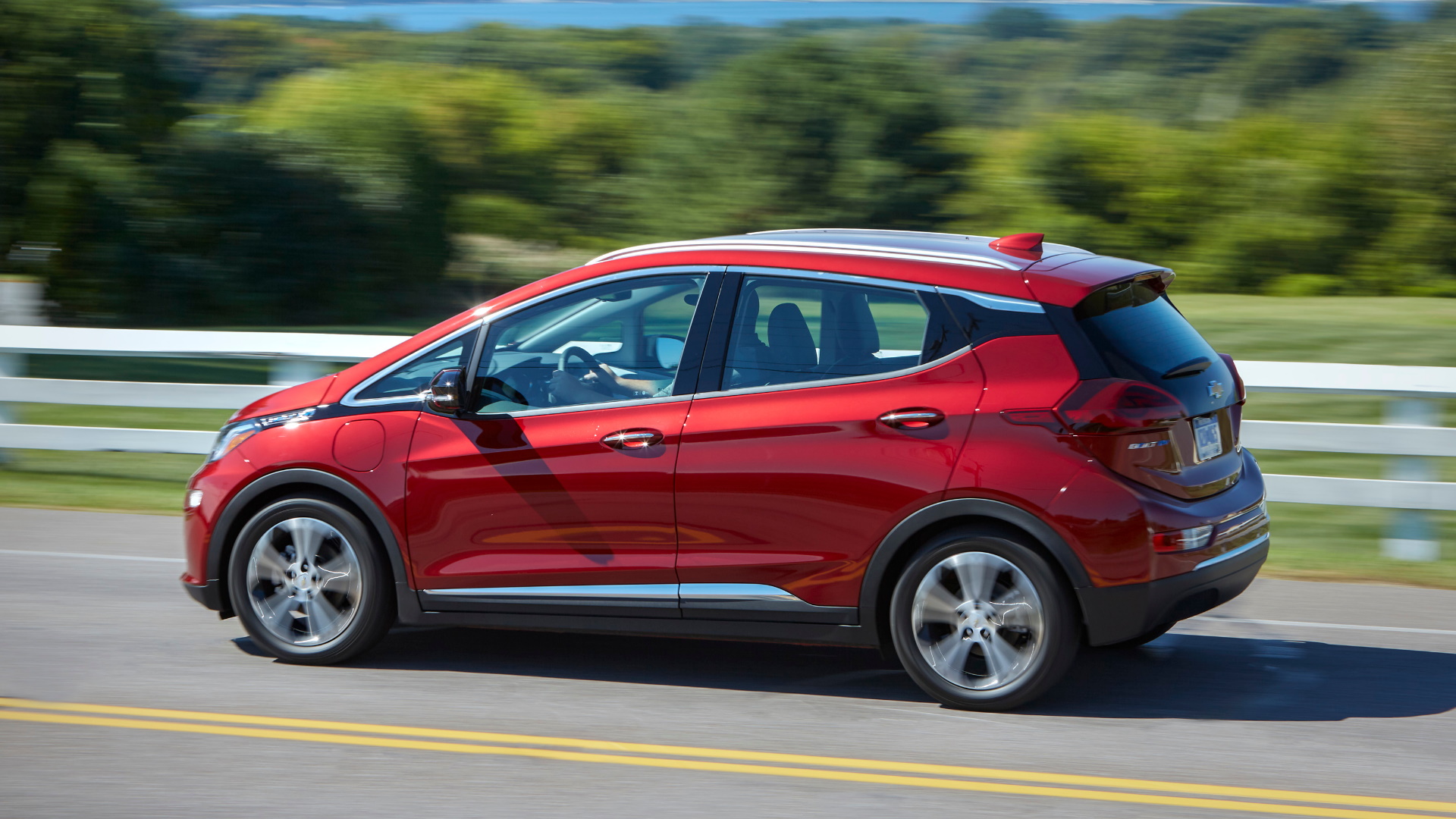

The previous-generation Chevy Bolt might not have been the hottest-looking car, but it’s still at risk of catching on fire. In the latest chapter of “Building Electric Cars Is Hard,” General Motors is finding itself in the same limelight as Tesla, BMW, Porsche, and others.
Doubling down on the previous fire-risk recall issued last November, the National Highway Traffic Safety Administration (NHTSA) claims more than 50,000 2017-2019 Chevy Bolt owners should yet again take precautions over the possibility of their cars going up in flames—including those which have already had the previous recall work complete.

According to the NHTSA, affected Bolt owners should be taking the same precautions as recommended during the last recall, namely not allowing the vehicle to charge unsupervised and ensuring it’s parked in a relatively remote location.
“Owners of these vehicles should park their vehicles outside away from homes and other structures immediately after charging and should not leave their vehicles charging overnight,” says the NHTSA consumer alert, contributing the advice directly to General Motors.
You can read the full text of the consumer alert on the NHTSA’s website.
Chevrolet initially offered a hardware remedy nearly six months after the original recall was issued, attributing the cause to “high voltage cells produced at LGChem’s Ochang, Korea facility” which were charged to near-capacity. However, it seems that the fix might not be as effective as GM thought. The NHTSA says that it’s aware of at least two “fixed” Chevy Bolts catching on fire post-repair, meaning that the fix might be a bit more complicated than just replacing a bunch of battery packs.
While the exact cause of the fires has been debated, GM has been remarkably reactive regarding affected vehicles. Some original owners even receiving full sticker price buyback offers from the Detroit auto giant.
Owners should refer to Chevrolet’s official recall site for up-to-date information from the automaker regarding its investigation on the issue, but for now, it’s advisable to park that car outside and away from the house. And maybe use that extra garage space to pick up a new hobby instead.
Got a tip or question for the author? Contact them directly: rob@thedrive.com